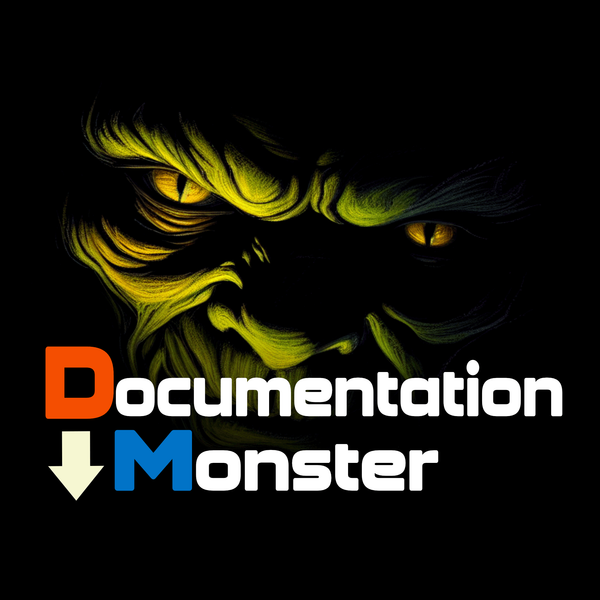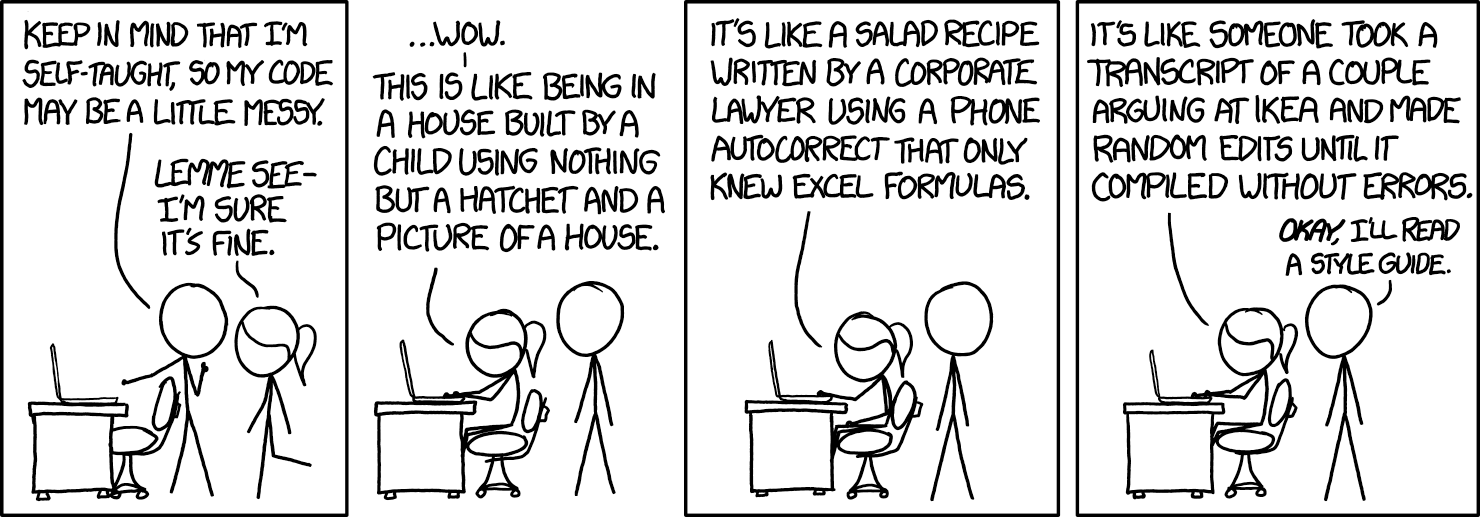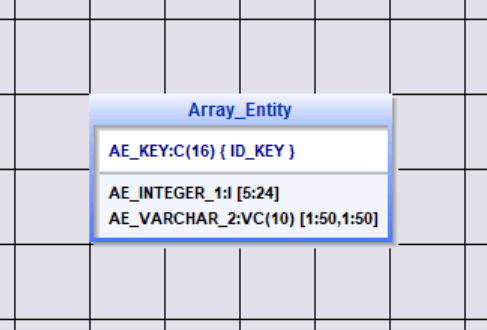AI CodeCamp Day 3: A Focused Deep Dive into Real-World AI
Clocking in at just three hours, it offered a more focused and manageable experience.
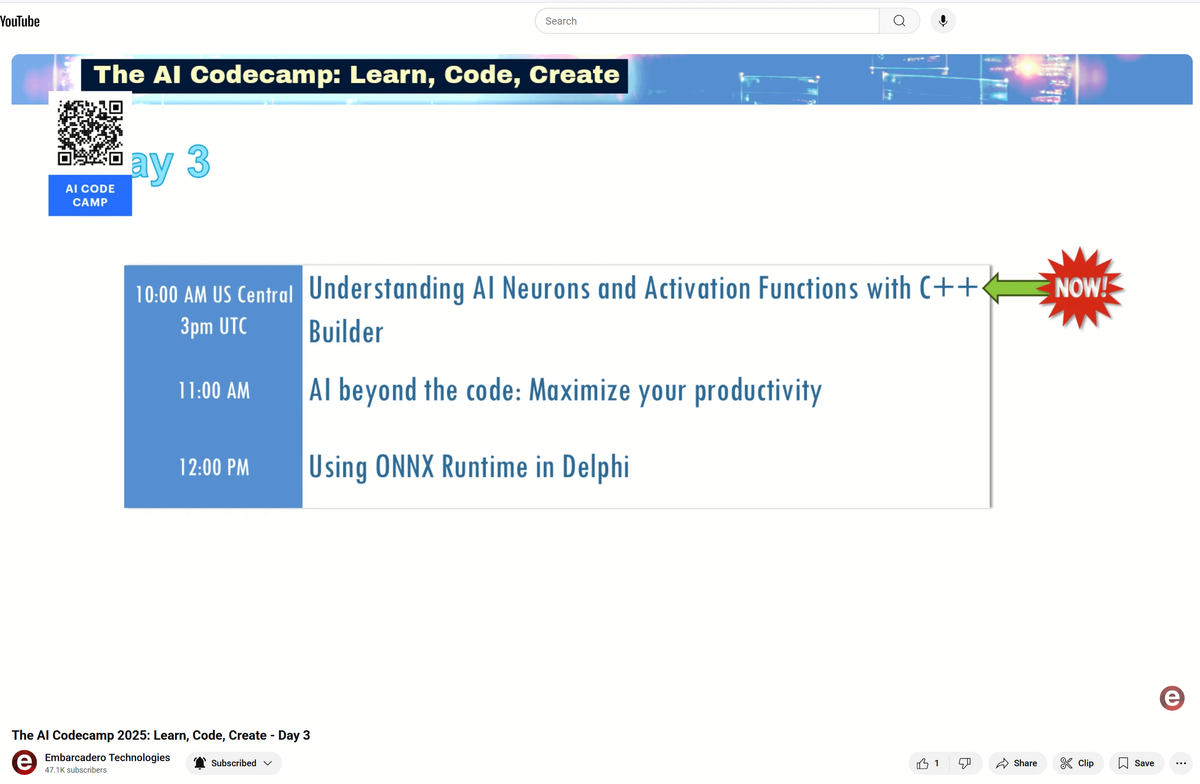
After two marathon days packed with presentations, Day 3 of Embarcadero's AI CodeCamp felt refreshingly concise and to the point. Clocking in at just three hours, it offered a more focused and manageable experience. While the lineup was shorter, the presentations carried considerable depth, offering attendees actual learning rather than overwhelming spectacle.
What Made Day 3 Stand Out
The shorter format worked in the event's favor. With less time pressure, each segment had breathing room for both presenters and attendees. Topics were well chosen—each drilling down into a specific and practical aspect of AI, from neural networks and productivity tools to real-world Delphi integration with ONNX.
Unlike some earlier sessions that sacrificed clarity for flash, Day 3 struck a better educational balance. Slides were informative, foundational context was provided where needed, and most importantly, viewers left with actionable insights.
Presentation Highlights
🧠 Understanding AI Neurons and Activation Functions (Yilmaz Yörü)
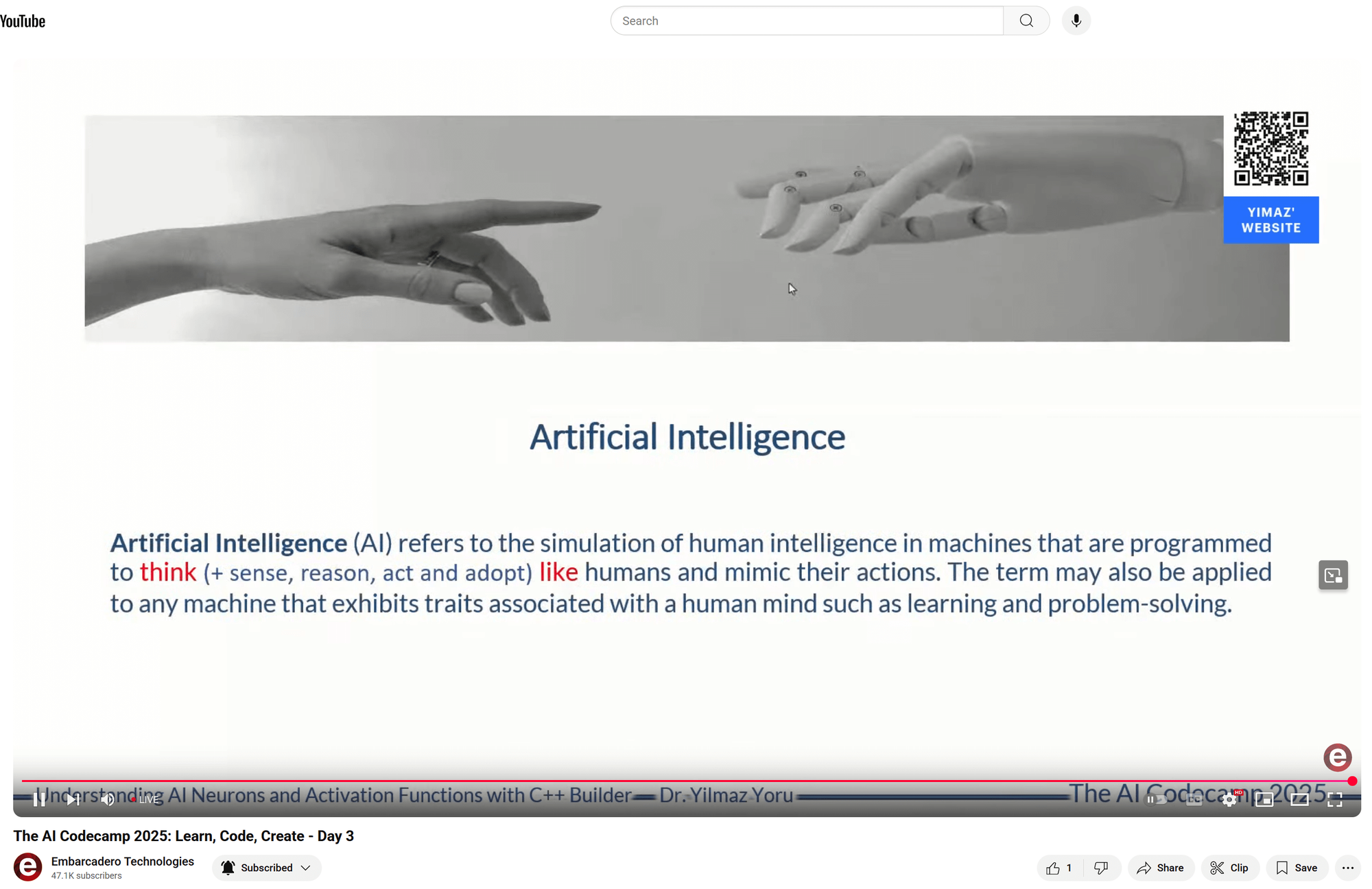
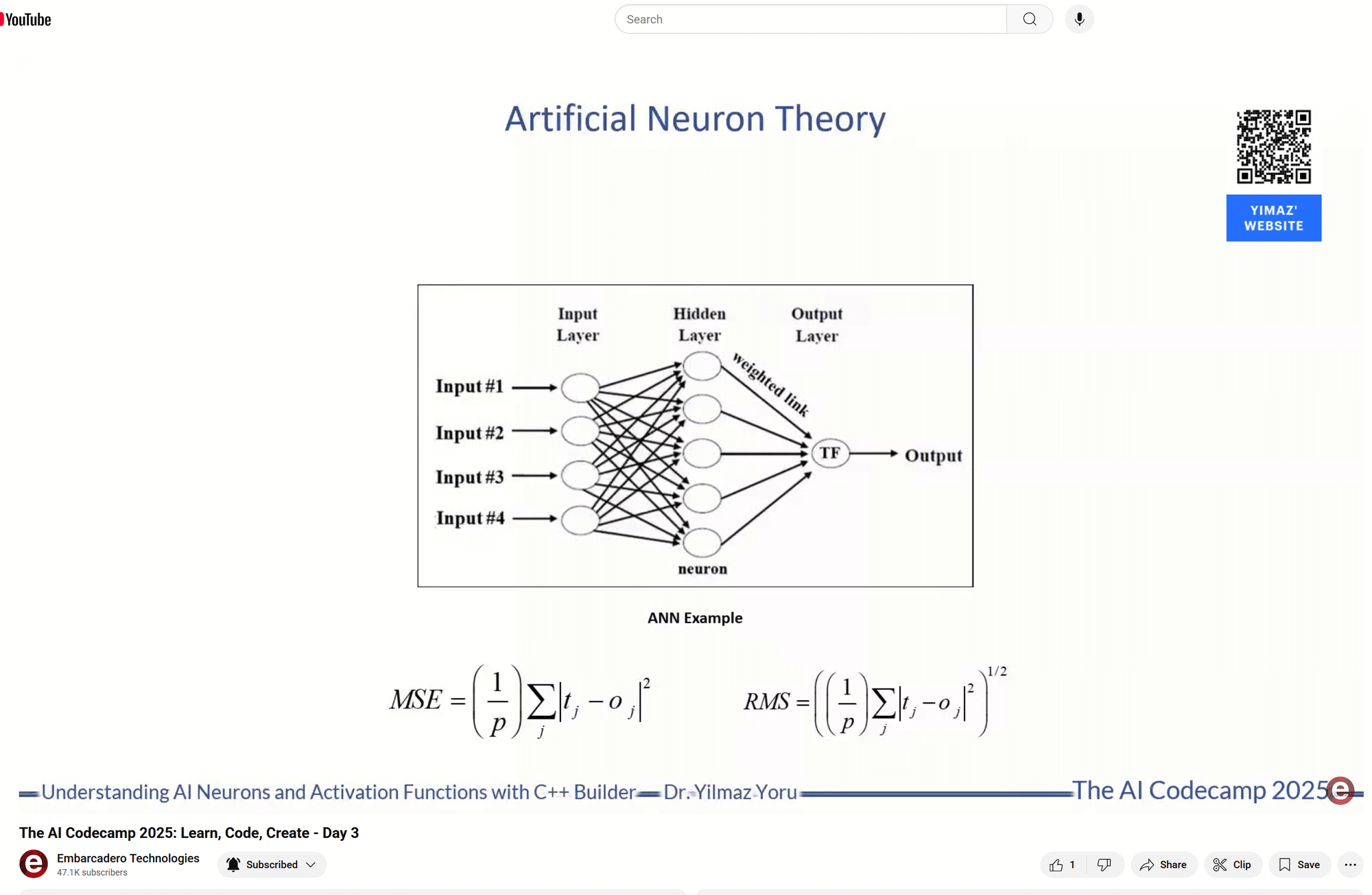
Foundational Concepts of Artificial Intelligence
Yörü traced the origins of artificial neurons back to biological analogs, walking us through both theory and math with clarity. Especially useful were the side-by-side graphs of activation functions and C++ code samples—clear visuals that helped demystify these fundamental AI building blocks. Ethical considerations and even “singularity” speculation made brief but meaningful appearances in the live Q&A.
Verdict: Strong foundational content, though it could have used a bit more time to explore deeper examples.
🔍 AI Beyond the Code: Maximize Your Productivity (Dion Mai)
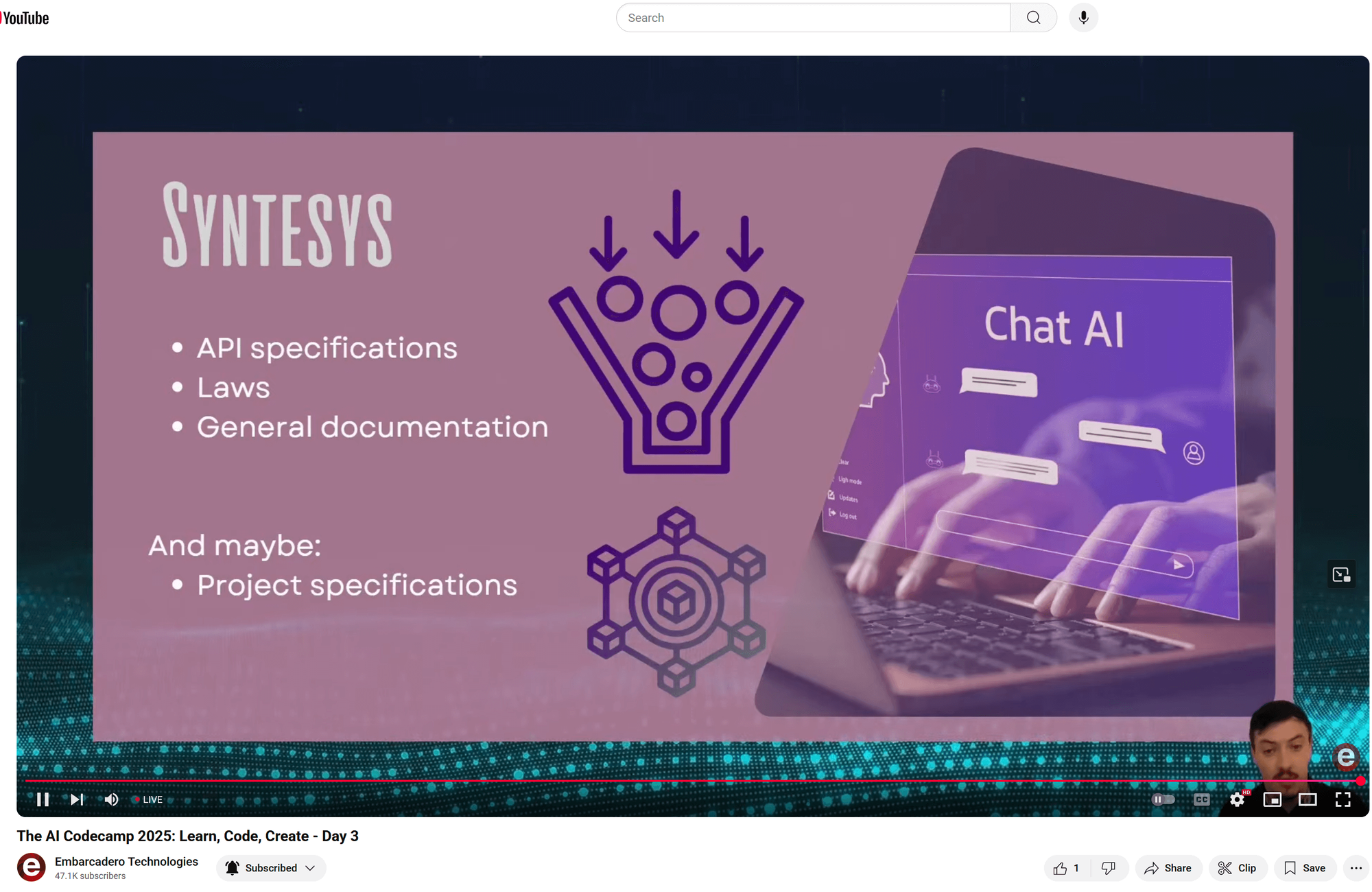
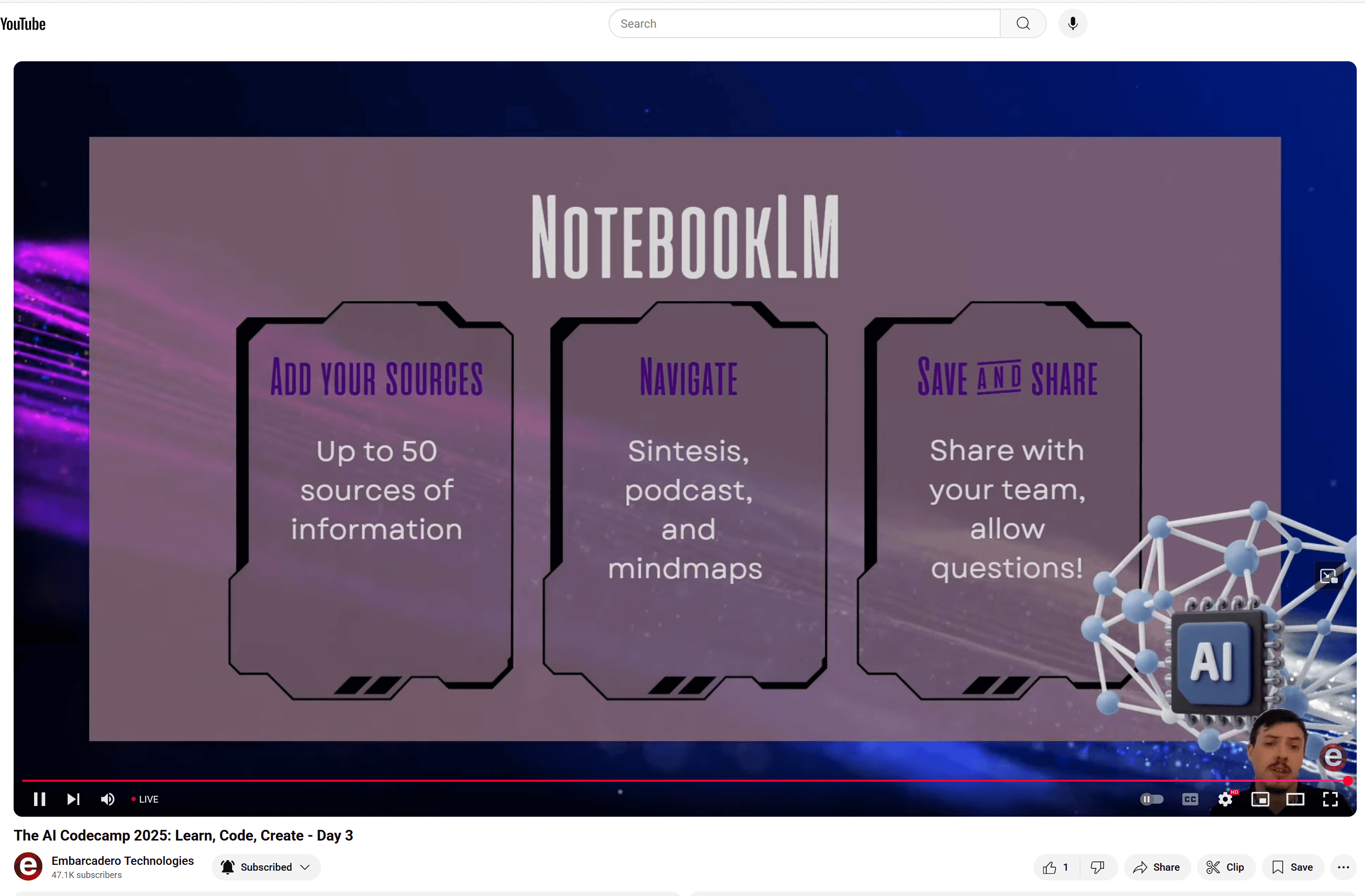
Tools and Methods for Maximizing Productivity
Dion Mai’s session explored how AI can augment non-coding workflows—turning meeting transcripts into structured documents, helping scope writing, and even anticipating bugs during planning. The emphasis on “synthesis” (aggregating and summarizing) echoed insights from The Mythical Man Month’s “project workbook” concept.
Verdict: A compelling exploration of LLMs in support roles—but a reminder that AI is not omniscient, and human oversight remains essential.
💻 Using ONNX Runtime in Delphi (Alena Puzanava)
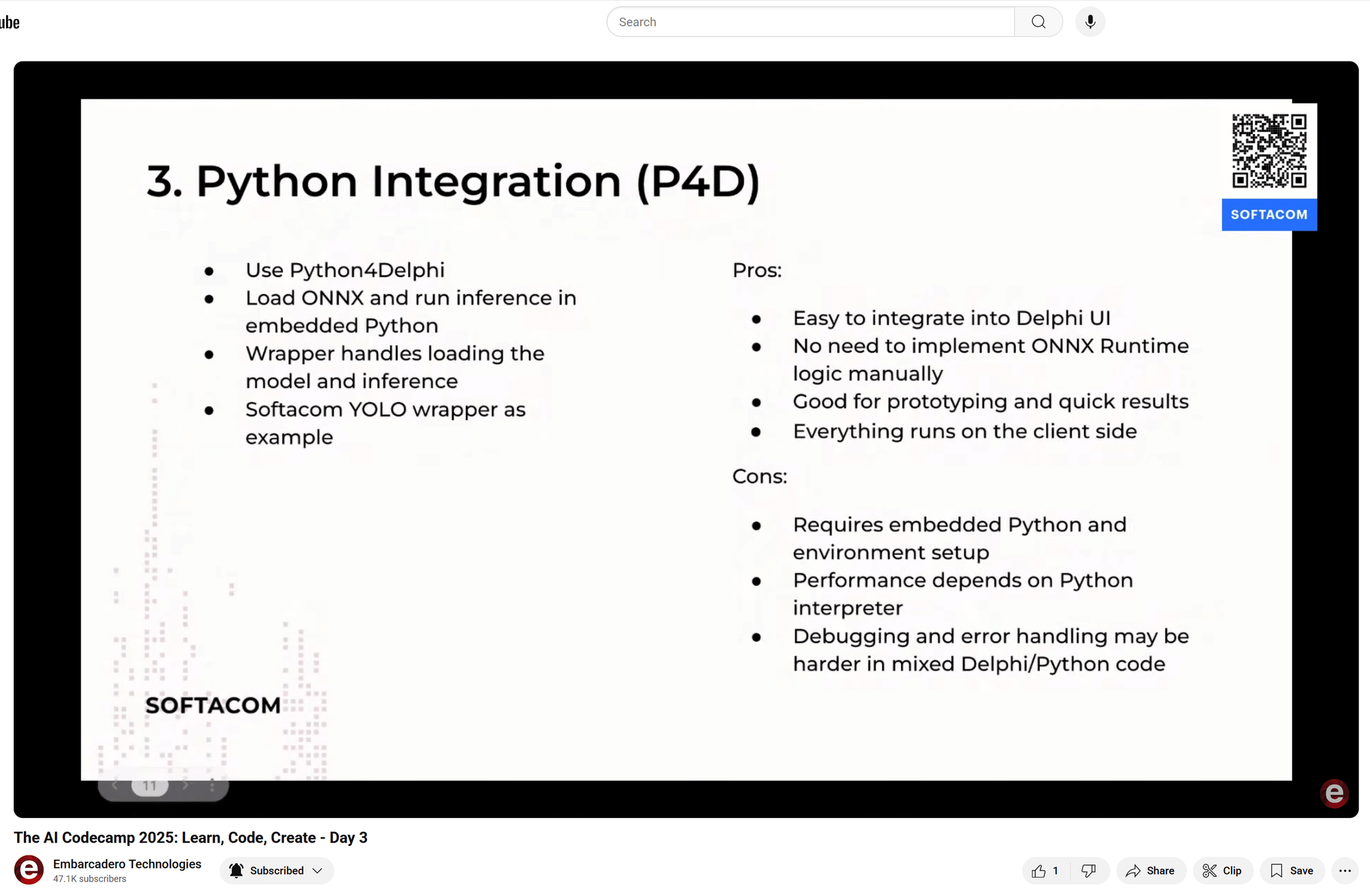
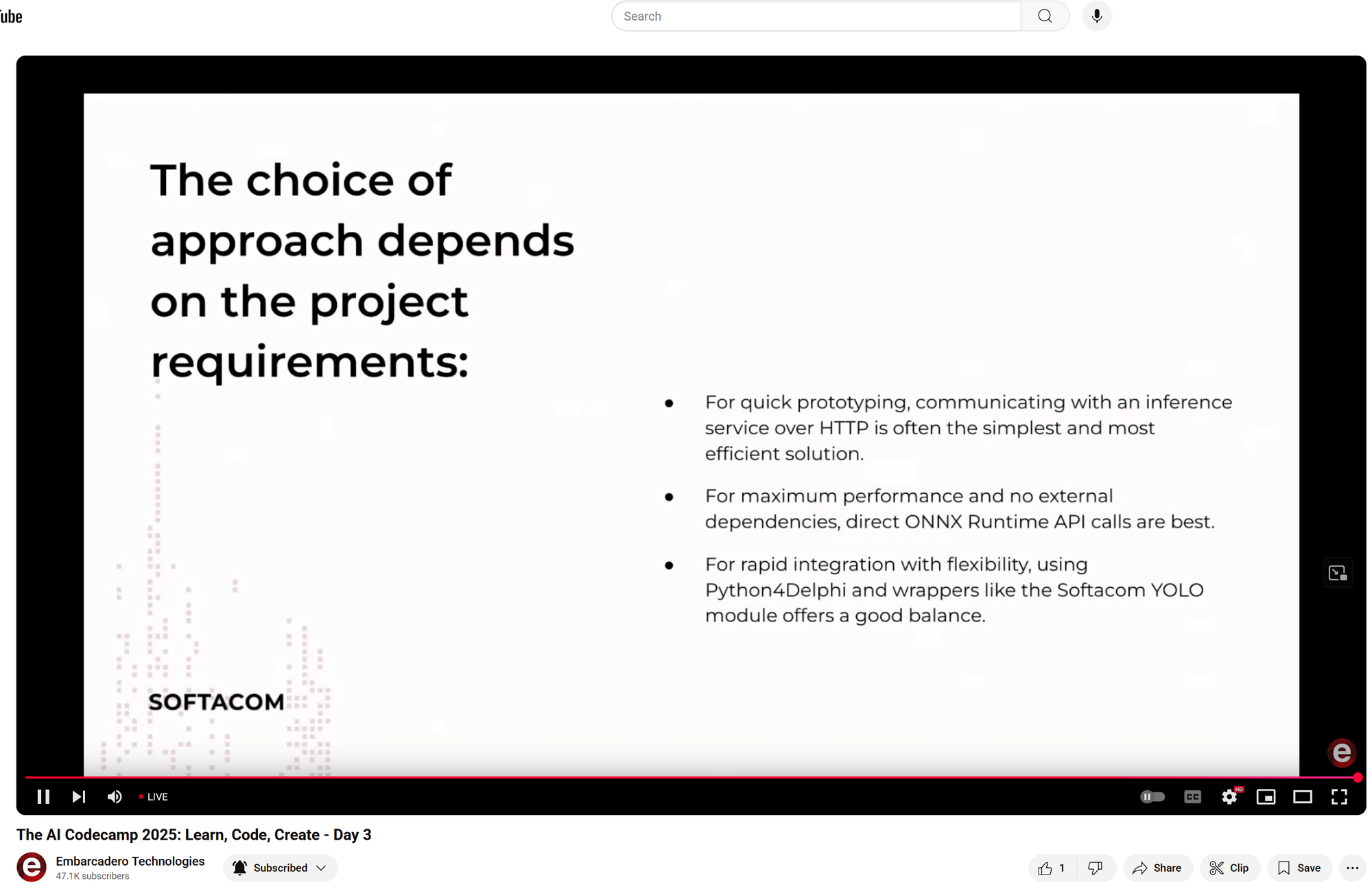
Code-Along Architecture Choice
This was arguably the most polished technical presentation of the day. Puzanava led a detailed code-along demonstrating how to use the ONNX Runtime from Delphi, leveraging Softacom’s YOLO wrapper and Python integration. Production quality was top-notch, and the narration synchronized seamlessly with on-screen code execution.
Verdict: A model for how technical demos should be done. Clear, competent, and immediately useful.
Room for Improvement
Despite the overall high quality, a few quibbles remain:
- Moderation filler: Some transitions were overlong, possibly to compensate for the shorter schedule.
- Lack of downloadable resources: Especially for the ONNX demo, having code and slides available post-session would have added value.
Final Thoughts
Day 3 was easily the most satisfying experience of AI CodeCamp so far. It delivered real content, avoided fluff, and gave attendees something tangible to take away. If Days 1 and 2 were exploratory sprints through the AI jungle, Day 3 was a well-marked trail with signposts—and a guide who actually knew where we were going.
Let’s hope Embarcadero takes the hint: less is more, especially when it’s done right.
